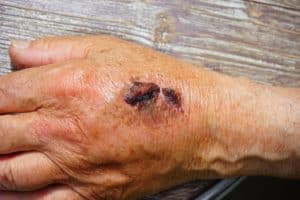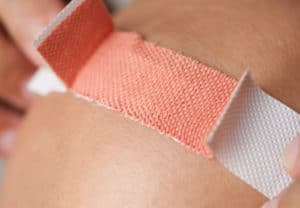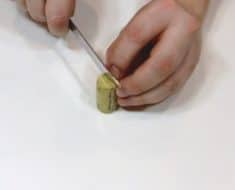
Source: Pixabay
Using the correct open wound treatment can imply the distinction between fast regeneration and extended healing, scars, severe pain, enhanced infection risk, or more. Unfortunately, open wound care is surrounded by several misconceptions and confusions, mostly due to constant prevalent wound treatment myths and stories of ancient wives.
Here are some of the correct and incorrect methods to use when handling your open wound therapy to assist set the record straight and make sure you have a favorable healing process.
Clean The Wound With Mild Solutions Immediately
Infections are triggered not only by bacteria and pathogens exposure but also by ground contact that caused the wound. A tree branch that caused an abrasion, for instance, could have bacteria on its surface, as could a kitchen knife that caused a puncture of the skin. Flush the surface of the wound as well as the interior with a mild solution as possible. A saline solution made from a small quantity of salt diluted in water works well as it imitates the internal pH of your body.
You can also use mild soap in water works well, or some purified water then wipes the surface with clean gauze. Notice any debris that may be placed in the wound and remove it, if necessary, with sterile tweezers. If the debris is deep or spread, emergency care should be sought.
Take Control Of Your Care, Take Medicines If Necessary
It may not always be possible for common over-the-counter wound care alternatives to meet your requirements. If you have one or more open injuries that are not correctly healed, you must take control of your care and seek medical help from a qualified specialist. Usually, a doctor will give prescriptions that can easily cure the wound and protect it from infections. Antibiotic such as Thermazene cream that stops the growth of bacteria that can infect the open wound.
This helps to reduce the danger of spreading the bacteria to the adjacent skin or to the blood where it can trigger severe blood infection (sepsis). Silver sulfadiazine belongs to a class of antibiotics called sulfa. To get this medication at a lower cost, you may use discounts card like Thermazene coupon that offers significant discounts to help in taking care of your wound.
Keep Your Wounds Covered And Moist

Source: https://mediniz-images-2018-100.s3.ap-south-1.amazonaws.com/
As far back as the early 1960s, medical experts started to understand the advantages of covered, wet injuries. A Dr. George D. Winter published a paper at that time, revealing, “Wounds kept moist healed in about 12-15 days, while the same wound healed in about 25-30 days when exposed to the air.” Covered, moist wounds move faster into the healing stage of the proliferation of wound where fresh skin and tissue begin to develop.
Periodically, wounds left to “air dry” form a crust over the epithelializing layer, inhibiting fresh granular tissue development, slowing healing and promoting more scar formation. For tissues not yet covered by a protective skin layer, dry air can also lead to cell death. Keep your wounds covered with sophisticated dressings of the wound such as movies and hydrogels. These products are specifically intended to generate surroundings for wet wound healing.
Apply Pressure To Your Wound
Quickly stop bleeding can deter anemia and other circumstances that lead to a weakened immune system and slower periods of healing during open wound treatment. Cover the wound with absorbent material such as pads of sterile gauze or a smooth, dry cloth. Maintain one to five minutes of stress. You will need medical therapy to close the wound if the bleeding does not slow or continue.
Things You Do Not Do To Your Wound

Source: https://www.latimes.com/
Do not use strong antiseptics such as hydrogen peroxide, rubbing alcohol, and iodine in washing your wounds. Because these are very harmful to use on human tissue. You must not ignore wounds that do not heal because it can worsen over time. If your wound is not improving at a constant pace, another health condition may infect or complicate it. Do not disregard the indications; visit as quickly as possible a medical professional.
have some kind of complication. Excessive inflammation, infection, and slow healing may be included. Most open wound treatments for minor injuries reach the stage of proliferation within one to three weeks, meaning that if the wound is managed through periodic cleaning and changes in dressing, it is actively healing.
Takeaway
Many of us are thinking that open wounds are not a big deal. However, once the wound is infected, that would cause a lot of illnesses, and if not treated right away can lead to death. It is better to take care of it right away than waiting for the worse. Have your own first aid kit that you can always use once you got a wound.









































